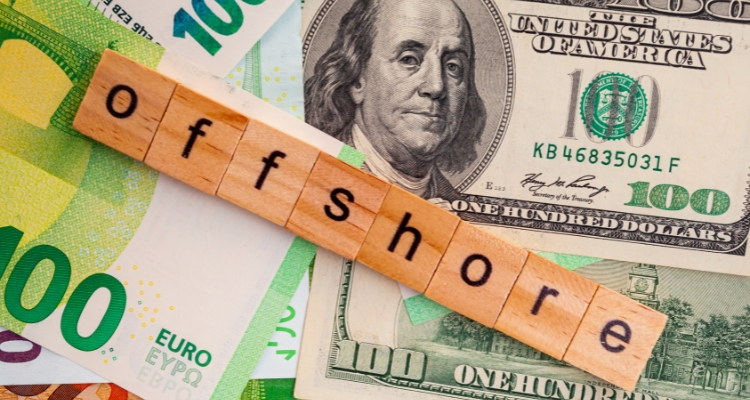Forex brokers have traditionally favored cost-effective and straightforward alternatives for company formation and market entry. Popular offshore jurisdictions like Belize, Mauritius, Seychelles, and Cyprus have attracted businesses due to their advantages in terms of cost, credibility, and regulatory environment. While some market players operate without specific licenses, recent changes in the regulatory landscape have prompted shifts in choices. This article delves into the evolving dynamics of foreign exchange regulation in offshore jurisdictions and its impact on forex brokers.
Shifting Landscape: Saint Vincent and the Grenadines
Saint Vincent and the Grenadines, once a popular unlicensed but compliant jurisdiction for forex firms, has recently tightened its regulations. The move came in response to a surge in complaints and allegations of fraud against forex companies registered in the jurisdiction. The new regulations stipulate:
A) Companies must acquire permits from relevant jurisdictions where they operate, even if no local license is required.
B) Existing businesses have a grace period to obtain necessary permits, failing which penalties are imposed.
Exploring Alternatives: Nevis and Saint Lucia
Nevis, where forex trading isn’t licensed, has been a favored option. However, as the regulatory climate changes in Saint Vincent and the Grenadines, Nevis’s attractiveness is diminishing. Saint Lucia, once simple and affordable, is now requiring licenses for forex businesses, even those operating internationally. Both Nevis and Saint Lucia may lose their appeal as startups seek more dependable jurisdictions.
Rising Stars: Seychelles and Vanuatu
Seychelles and Vanuatu emerge as leading forex solutions in 2023. Known for offshore taxation, flexible regulations, and minimal fees, they offer reliable choices for serious forex projects. Supervised by Seychelles FSA and Vanuatu VFSC, these jurisdictions mandate licenses for anti-money laundering compliance and regulatory adherence.
While Seychelles and Vanuatu present appealing options, it’s essential to weigh risks against rewards. Their regulatory structures may be less stringent than those in other regions, requiring investors to carefully evaluate the decision. Cyprus, with its well-known CySEC regulation, offers an alternative for those seeking European standards and broader market access.
Tailored Solutions and Conclusion
The choice of jurisdiction for a forex startup hinges on factors like budget, target markets, business model, and specific requirements. Large forex brokers often opt for multiple licenses to operate across various jurisdictions. Amidst high-risk dynamics, the landscape of unauthorized forex brokers is evolving due to regulatory pressures and deoffshorization policies. Nevertheless, alternatives remain for startups seeking a balance between loyal regulation and industry demands.
Navigating the Dark Side: Frauds and Scams in Forex Brokerage Using Regulatory Loopholes
While offshore jurisdictions have been attractive for forex brokers due to their lenient regulations and cost-effectiveness, this landscape has also bred opportunities for fraudulent activities. Some unscrupulous forex brokers exploit regulatory loopholes in these jurisdictions to carry out scams and frauds, leaving traders vulnerable to financial losses and tarnishing the reputation of the industry. This article sheds light on the dark side of forex brokerage, revealing the tactics used and the impact on unsuspecting traders.
The Allure of Leniency
Forex brokers frequently choose offshore jurisdictions because of their lax regulatory environments. These brokers may take advantage of these lenient regulations to engage in fraudulent practices that would be more difficult in stricter jurisdictions. This includes operating without adequate capital, manipulating market prices, and offering unrealistic promises to lure in traders.
Pump-and-Dump Schemes
One common scam involves “pump-and-dump” schemes, where brokers artificially inflate the price of a currency pair using aggressive marketing tactics and false information. Traders are then encouraged to buy into the hype, only to see the value plummet once the brokers sell their own holdings, leaving traders with substantial losses.
Fake Account Management
Another fraudulent tactic is offering managed accounts, where traders hand over their funds to brokers who promise to trade on their behalf. These brokers often manipulate trades, exaggerate profits, and pocket a significant portion of the traders’ funds. Traders ultimately discover that their investments have vanished or significantly dwindled.
Unregulated Bonus Offers
Some brokers entice traders with attractive bonus offers that seem too good to be true. These bonuses often come with stringent withdrawal conditions that make it nearly impossible for traders to access their funds. Brokers may even use these bonuses as a way to tie traders into their platform, preventing them from leaving.
Fake Regulation Claims
When, in reality, fraudulent brokers operate in jurisdictions with little oversight, they may make claims that they are subject to reputable authorities’ regulation. Traders who are attracted to the notion of a regulated broker may be misled into depositing funds with these scams.
Impact on Traders and the Industry
These fraudulent practices have far-reaching consequences. Traders, often novice investors, suffer substantial financial losses, leading to distrust in the forex industry as a whole. Legitimate brokers also face challenges as the actions of a few tarnish the reputation of the entire sector, making it harder for them to gain the trust of potential clients.
Mainly, offshore jurisdictions offer the forex brokerage to assign a deal with MetaQuotes and payment solutions. However, they also provide a fertile ground for fraudulent activities. Traders must exercise caution, perform due diligence, and stay informed to protect themselves from falling prey to scams. The forex industry as a whole must work collaboratively to weed out fraudulent actors and establish a safer environment for traders worldwide.

